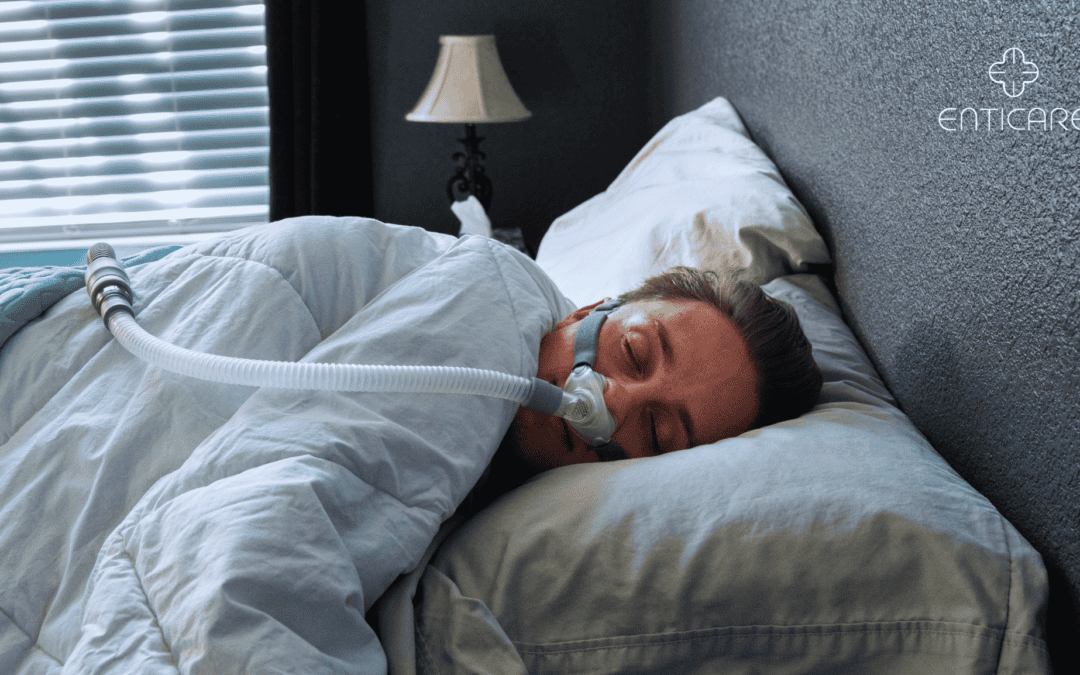Diagnosed with sleep apnea and overwhelmed by the different PAP options? You’re not alone! Understanding the distinctions between APAP, CPAP, and BiPAP machines is crucial for making an informed decision and getting the most out of your sleep therapy.
Sleep apnea disrupts your sleep by repeatedly blocking your airway, not allowing you to breath fully, leading to daytime fatigue, headaches, and increased health risks. Thankfully, Positive Airway Pressure (PAP) therapy is a game-changer, effectively treating sleep apnea by keeping your airway open during sleep. But with different PAP machines available, choosing the right one can be confusing. Let’s delve into the world of APAP, CPAP, and BiPAP therapy to understand their differences and find the best fit for you.
Here’s the breakdown:
- CPAP (Continuous Positive Airway Pressure):
- The workhorse of PAP therapy, CPAP delivers a constant, single pressure throughout the night.
- This pressure keeps your airway open, preventing apnea events and ensuring restful sleep.
- CPAP is ideal for those with straightforward obstructive sleep apnea and a consistent pressure requirement.
- APAP (Automatic Positive Airway Pressure):
- An advanced version of CPAP, APAP machines offer automatic pressure adjustment.
- They monitor your breathing and adjust the air pressure throughout the night as needed.
- This can be particularly beneficial for those with varying pressure needs or those who experience positional sleep apnea (where apnea severity changes with sleep position).
- BiPAP (Bilevel Positive Airway Pressure):
- Designed for more complex sleep apnea cases, BiPAP machines deliver two distinct pressure settings.
- One pressure, known as EPAP (Expiratory Positive Airway Pressure), delivers a lower pressure during exhalation. The other, IPAP (Inspiratory Positive Airway Pressure), delivers a higher pressure during inhalation.
- This can be helpful for individuals with weaker respiratory muscles or medical conditions like congestive heart failure.
Understanding the Reasons for Designations
The choice between APAP, CPAP, and BiPAP depends on the severity and type of your sleep apnea, as well as your individual needs. Here’s a closer look at the factors influencing your doctor’s decision:
- Severity of Sleep Apnea: For mild to moderate sleep apnea, CPAP is often the first-line therapy due to its effectiveness and simplicity.
- Pressure Needs: If your sleep study indicates a consistent pressure requirement, CPAP might be sufficient. However, if your pressure needs vary throughout the night, APAP provides a more adaptable solution.
- Underlying Medical Conditions: Individuals with medical conditions like heart failure or COPD may benefit from BiPAP due to its ability to provide separate pressure settings for inhalation and exhalation.
- Comfort: Some individuals find the constant pressure of CPAP uncomfortable. In such cases, APAP’s automatic adjustments or BiPAP’s separate pressure settings can offer a more comfortable experience.
Choosing the Right Machine
Ultimately, your doctor is the best resource for deciding on the most appropriate PAP therapy for your needs. They will consider your sleep study results, medical history, and your personal preferences.
Here are some pointers for a productive conversation with your doctor:
- Ask Questions: Don’t hesitate to ask questions about the different PAP options and their benefits and drawbacks.
- Discuss Comfort: Let your doctor know if you have any concerns about comfort or potential side effects.
- Be Open to Adjustments: Finding the right pressure settings and therapy type may require some adjustments. Be open to experimenting and fine-tuning your therapy with your doctor’s guidance.
Understanding the differences between APAP, CPAP, and BiPAP empowers you to participate actively in your sleep apnea treatment. By working closely with your doctor, you can choose the most effective and comfortable therapy for a good night’s sleep and improved daytime function. And if you have any questions, don’t hesitate to contact Enticare, our expert team is here to assist you every step of the way. Let us help you find the best course of treatment. Call us at 480-214-9000. Remember, restful sleep awaits!

